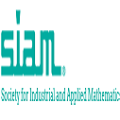Large language models (LLMs) have emerged as effective action policies for sequential decision-making (SDM) tasks due to their extensive prior knowledge. However, this broad yet general knowledge is often insufficient for specific decision-making tasks with limited task-related data, making it challenging to efficiently adapt LLMs to specific SDM tasks. To address this challenge, we propose a memory-driven self-improvement framework that combines LLM general prior knowledge with a compact memory of domain-specific experiences. Memory retains past interactions and associated Q-values, thereby capturing decision-relevant knowledge that facilitates accurate value estimation and informs the LLM prior refinement. The refined LLM prior, in turn, generates higher-reward trajectories that further enrich memory, forming a natural self-improvement framework where memory and LLM prior mutually reinforce each other. Experiments show that our memory-driven approach significantly outperforms both traditional RL and LLM-based baselines, e.g., improving performance by over 40\% on in-distribution tasks and over 75\% when generalized to unseen tasks in ALFWorld.
翻译:暂无翻译





